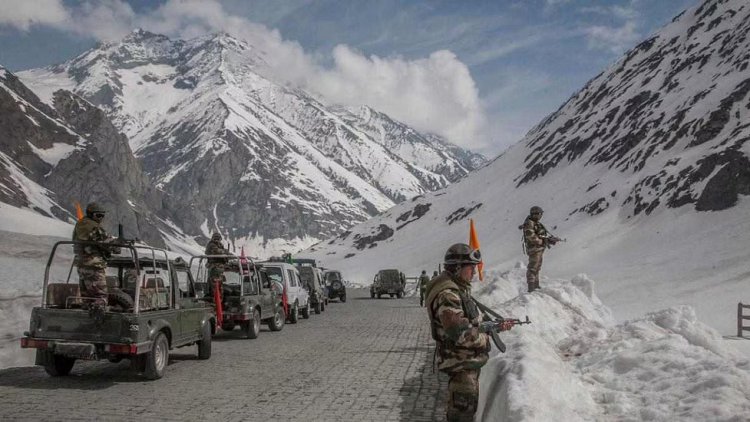India’s S. Asia Diplomatic Offensive: Reclaiming the Lost Advantage from China
STORIES, ANALYSES, EXPERT VIEWS

Even as the Chinese foreign minister Wang Yi departed from Delhi for Kathmandu, India’s External Affairs Minister S Jaishankar was off to the Maldives for his own meetings with President Ibu Solih and foreign minister Abdulla Shahid. From Male, Jaishankar has travelled to Colombo, where he met the Sri Lankan leadership.
Jyoti Malhotra (senior consulting editor at ThePrint) writes “Jaishankar’s foray into the Maldives and Sri Lanka these last few days has been noted…..for India’s agile return into this part of the Indian Ocean.”
Foreign Minister’s visits to Maldives and Sri Lanka
These visits may have surprised the Chinese where they have had considerably influence. Maldivian opposition leader Abdulla Yameen has been orchestrating an ‘India Out’ campaign these last few months and had strongly wooed the Chinese when he was in power until 2018.
So when Wang was visiting Nepal, Jaishankar in the Maldives was inaugurating the India-belt police academy and various other projects. Significantly, he also handed over the Indian-built expanded coastal radar system to the Maldivian chief of defence forces during his visit, “which basically means that India will henceforth maintain a keen and constant eye on the Maldives.”
For those watching South Asia carefully, Malhotra writes “this past week has seen a fascinating reversal of several recent Indian foreign policy debacles in its neighbourhood. It’s important to take a moment to understand what’s going on, to see clearly how India has clawed its way back into the region, where, not so long ago, the ground was being pulled from under its feet by the far richer and stronger Chinese.”
Getting Nepal back on track
A classic example is Nepal, emphasises Malhotra. “Only in 2020, Oli’s government was raging at India on sovereignty issues, seeking to incorporate the Indian territories of Kalapani, Limbiadhura and Lipulekh. But Oli’s Leftist government has since lost power to Deuba’s Nepali Congress and the mood has radically changed in Kathmandu, even though the sovereignty issues haven’t been ironed out. Deuba is now coming to Delhi on 1 April on a three-day visit, within days of Wang Yi exiting from Nepal.”
From the Maldives to Nepal, Bangladesh to Sri Lanka, India thus, seems determined to regain its former primary place in South Asia.
Getting Sri Lanka on track
Sri Lanka, where Jaishankar also visited, ‘is also a fascinating case study. Jaishankar’s visit last week comes at a time when the island nation is facing an unprecedented economic crisis. In Colombo primarily for the seven-nation BIMSTEC summit, the minister held talks with Lankan leaders and sealing bilateral pacts. Dwindling foreign exchange reserves have led to a currency devaluation in Lanka, causing critical shortage of food, fuel and other essential items. The island country has to repay debt of about $4 billion during the rest of this year, way above its foreign currency reserves which fell to $2.31 billion by February. The Covid-19 pandemic derailed Lanka’s all-important tourism industry, even as misgovernance and overdependence on China have also contributed towards wrecking the economy.
India has been prompt in lending a helping hand. New Delhi recently announced to extend a $1-billion line of credit, following a $400-million currency swap. An additional line of credit of $1.5 billion to import essentials is on the cards.
Sri Lanka is an important ally for India, writes The Tribune, “considering its strategic location in the Indian Ocean Region, where China has been flexing its muscles on the military and economic fronts……..With no immediate relief or assistance expected from the World Bank and the International Monetary Fund, India’s eagerness to help a neighbour in dire straits is in stark contrast to China’s opportunism, exemplified by the circumstances under which Lanka had to hand over the Hambantota port on 99-year lease. Once the crisis subsides, Lanka will have to introspect about the reasons that made things come to such a pass. Colombo needs to pragmatically recalibrate its ties with Beijing to ensure that it doesn’t fall headlong into the debt trap all over again. At the same time, it should never undervalue the importance of having India on board as an all-weather friend.”
















